It would be an understatement to say that the Covid-19 pandemic changed the job market and how companies operate. The changes were sudden, drastic, and shook the foundations of the traditional way most people looked at work. Suddenly, a large portion of the developed world found themselves working from home, maybe even for the first time in their lives.
It’s exciting. It’s efficient. And it’s here to stay. At least, according to Chris Herd, the founder and CEO of FirstbaseHQ. In a viral Twitter thread, Herd collated what he learned about the future of remote work and working from home from thousands of companies. Have a read through his intriguing posts, so let’s dive head-first into the fascinating topic of how the job industry is being modernized. The future looks bright and far more flexible than anyone dared to dream.
Herd’s company FirstbaseHQ helps businesses set up, manage, maintain, and retrieve the physical equipment their remote workers need to do their jobs remotely. So you know for a fact that Herd believes what he’s preaching—he’s even built a business around this idea.
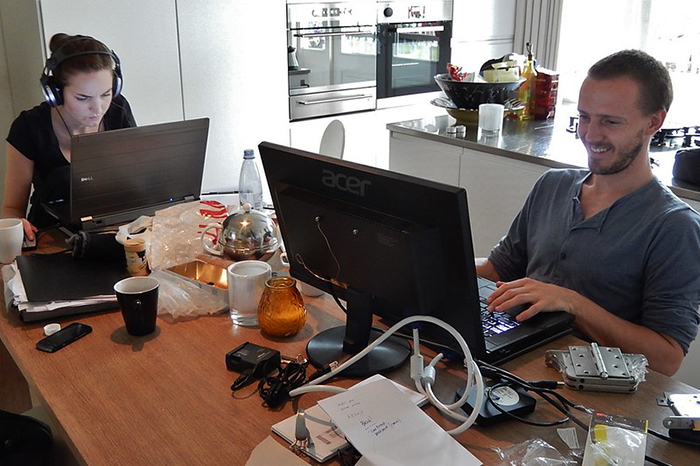
Image credits: Michael Coghlan
Chris Herd listed how lots of companies are looking at remote work and what the benefits, as well as the issues with it are

Image credits: chris_herd
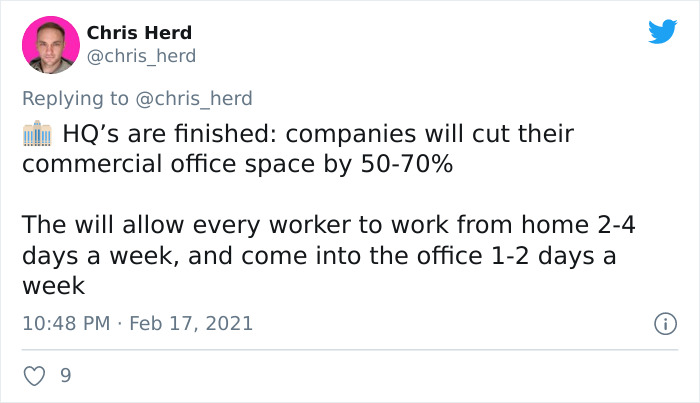
Image credits: chris_herd
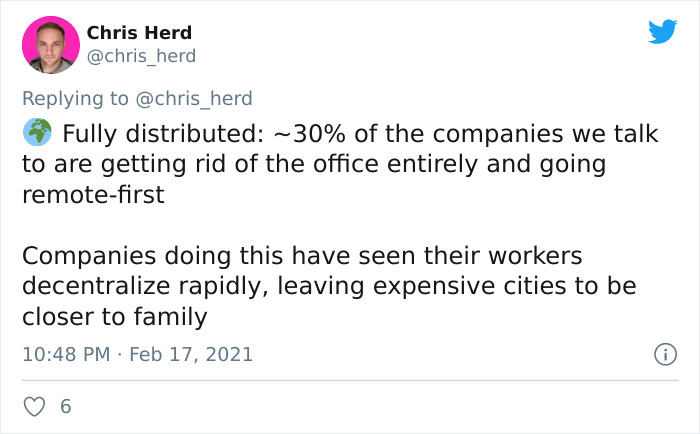
Image credits: chris_herd
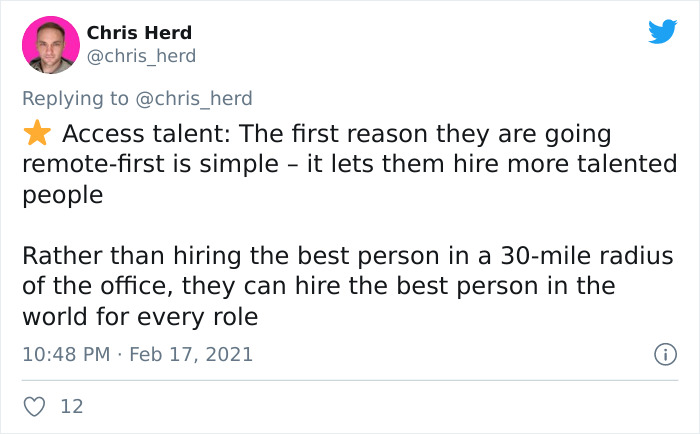
Image credits: chris_herd
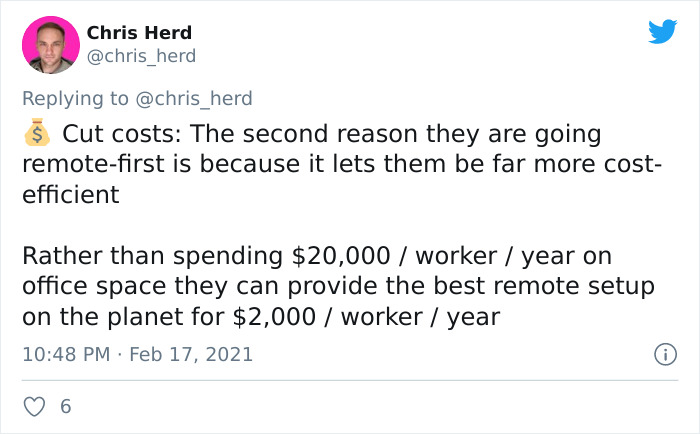
Image credits: chris_herd
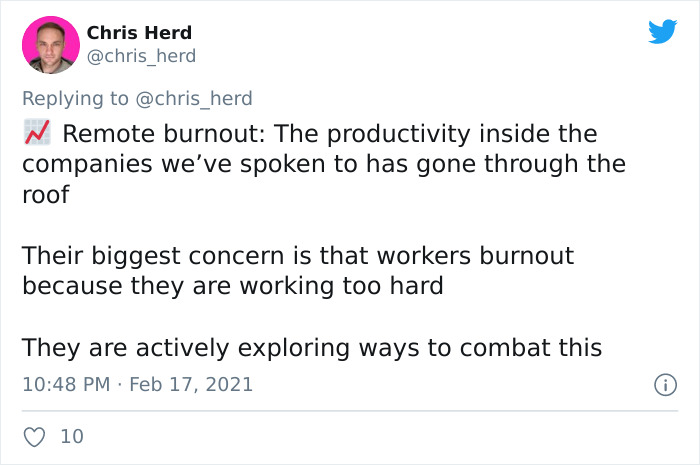
Image credits: chris_herd

Image credits: chris_herd
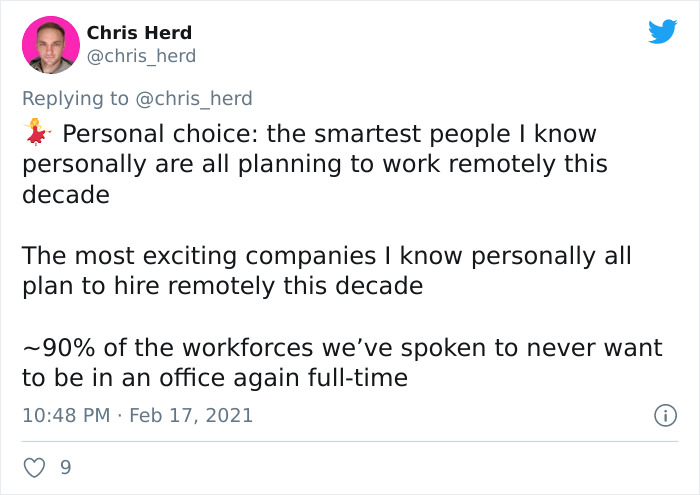
Image credits: chris_herd
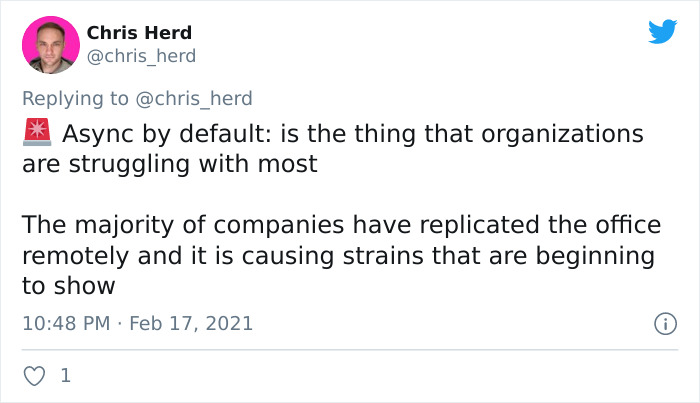
Image credits: chris_herd
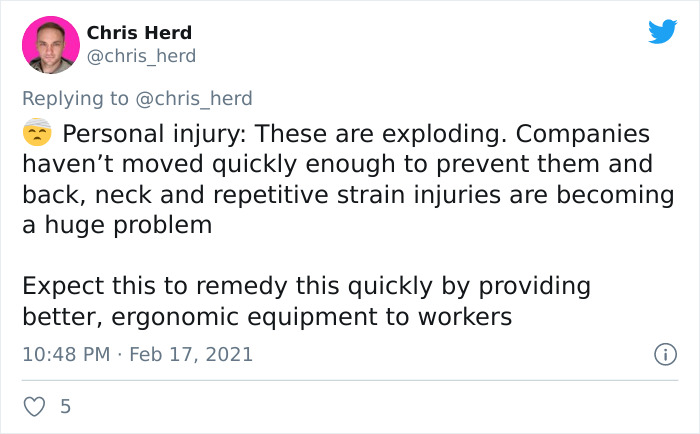
Image credits: chris_herd
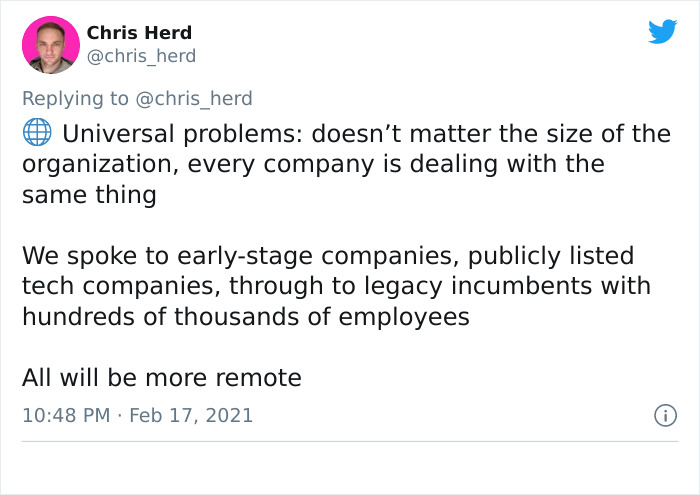
Image credits: chris_herd

Image credits: chris_herd
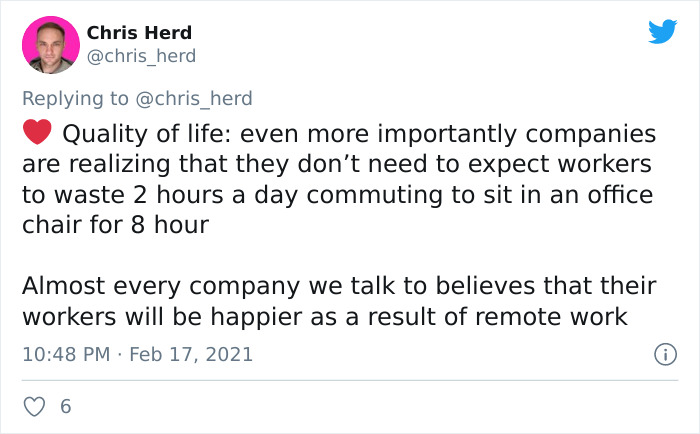
Image credits: chris_herd
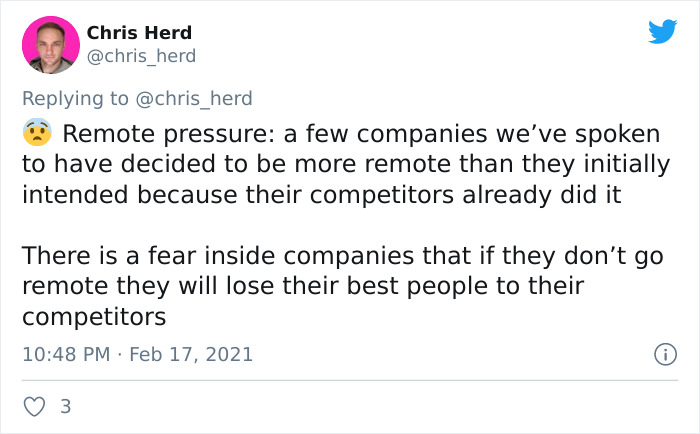
Image credits: chris_herd
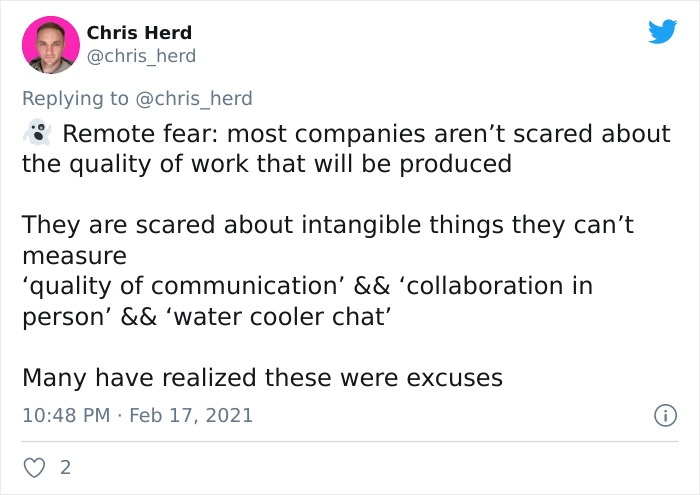
Image credits: chris_herd
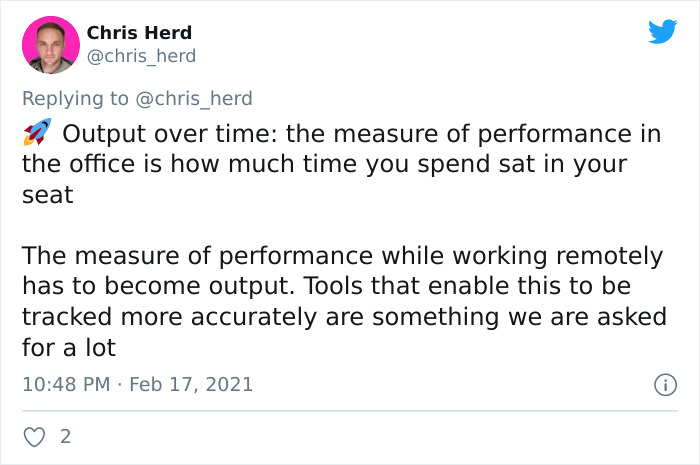
Image credits: chris_herd
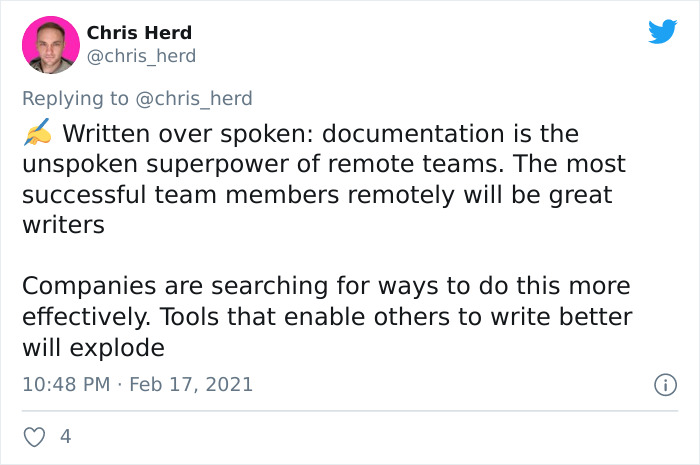
Image credits: chris_herd
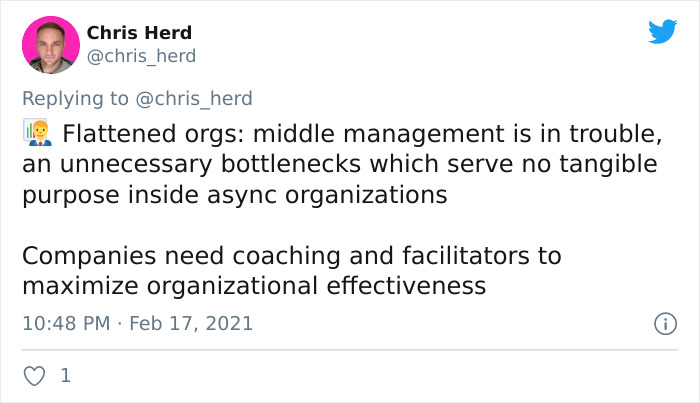
Image credits: chris_herd

Image credits: chris_herd
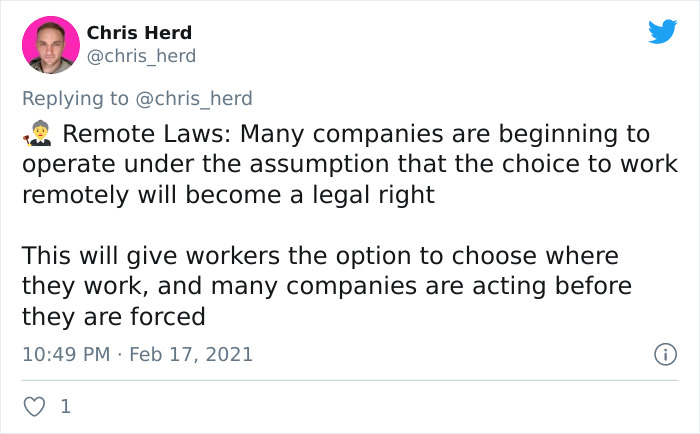
Image credits: chris_herd

Image credits: chris_herd
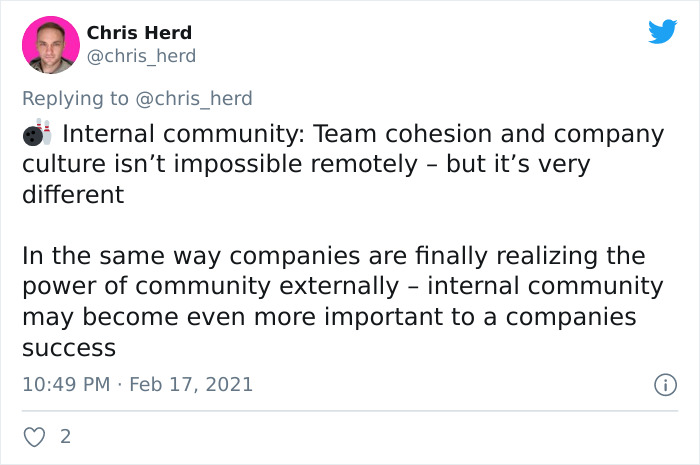
Image credits: chris_herd
Lots of us already know the benefits of remote work. Among them is protecting our loved ones from the coronavirus by having contact with fewer people every day. What’s more, we’re saving time by not having to commute to the office, so we have more time for rest, leisure activities, and our families. However, remote work isn’t the panacea that many thought it would be. It still has its flaws, especially while companies and managers cling to their old philosophies.
There’s lots of potential for burnout because employees are working harder and longer
Some employees are remarking that they’re working far longer hours when working remotely or that their workloads have increased dramatically.
Others have reported that it’s difficult to separate work from leisure now (which is why it’s important to have a dedicated space at home where you only work so you’re physically leaving it once you clock out). Naturally, we’re seeing lots of cases of burnout. Think about your coworkers and you’ll see what I mean.
For some, remote work is only a temporary pleasure, however. Even though the pandemic is nowhere near controlled yet, spring and summer are approaching and it’s likely that lockdown restrictions will be lifted. A cause for celebration, yes? Not exactly.
This means that some businesses will be rushing to herd their employees back into their cubicles and open offices with their water coolers, beanbags, and foosball tables. Only to send them packing again once autumn comes around again. Others, however, have learned from the past year and will have adapted. For them, the semi-annual mass exodus doesn’t make sense and they’ll want to move to a more permanent system that maximizes flexibility and employee choice.
Flexibility, choice, and finding balance are the name of the game
After all, employees can be very different in how they approach work. Some thrive in the office while others are most efficient at home. Some need to be constantly surrounded by their coworkers while others want to limit their interactions during working hours. Some have large families and work from their kitchens without any privacy while others have dedicated offices at home.
But choosing between the office and home isn’t about making binary choices. They’re a spectrum. And many will opt for balance: mixing work from home with work from the office and getting the best from both worlds. This way, you stay emotionally invested in your colleagues and the company while also being treated like a responsible adult who knows what’s best for them.
That’s why offering employees the choice of how they approach things is best. After all, if we’re completely honest with ourselves, we know where and under what conditions we work best. And if your work results corroborate your view of your performance, well, more power to you.
Remote work—a question of trust?
There are, however, practical limitations to remote work. You can’t suddenly jet off to Barcelona and work from a beachside cafe while taking in the waves and the stunning architecture. There are lots of complicated tax reasons for this, as well as some managers’ suspicions that you might be relaxing during work hours.
In other words, it’s all a question of trust. It means having a record of getting the job done under any circumstances. If you’re trusted, you then get rewarded with flexibility and being able to live a high-quality life while also raking in the dough and climbing up the career ladder like Winnie the Pooh going after a beehive.
So, dear Pandas, what do you think of remote work? Is it here to stay? Is it going away (temporarily) the moment the weather warms up and the lockdown restrictions ease up? Is Herd looking at this too optimistically? What have your own experiences with remote work been like? Are you working more? How do you deal with burnout? We can’t wait to hear what you think, so drop us a comment or two below!
Here’s what people are saying after reading through Herd’s tweets
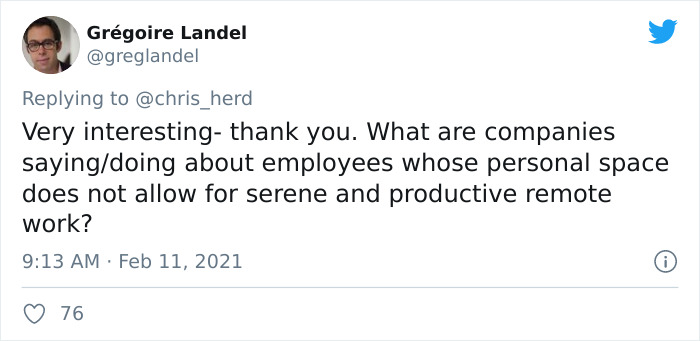
Image credits: greglandel

Image credits: DMuircheartaigh
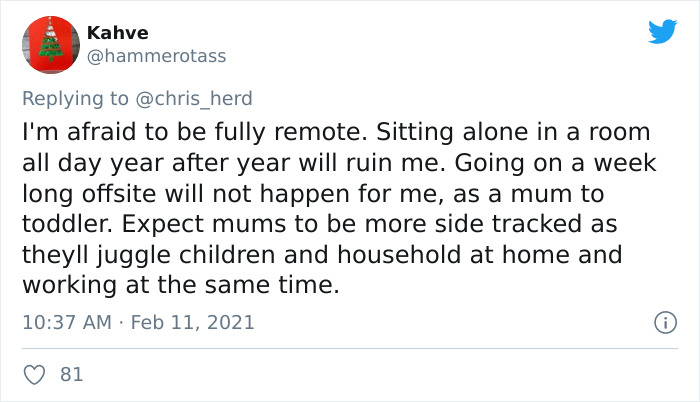
Image credits: hammerotass

Image credits: brez223
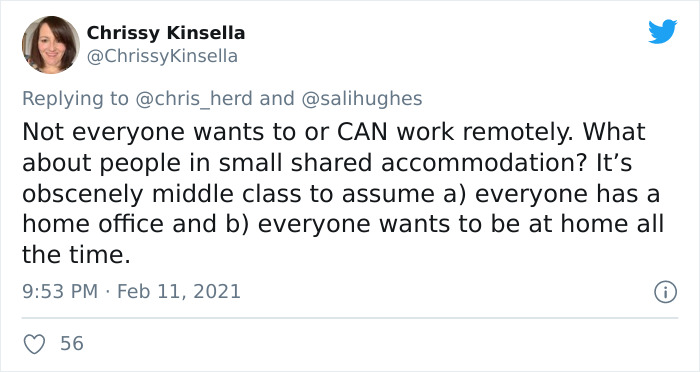
Image credits: ChrissyKinsella
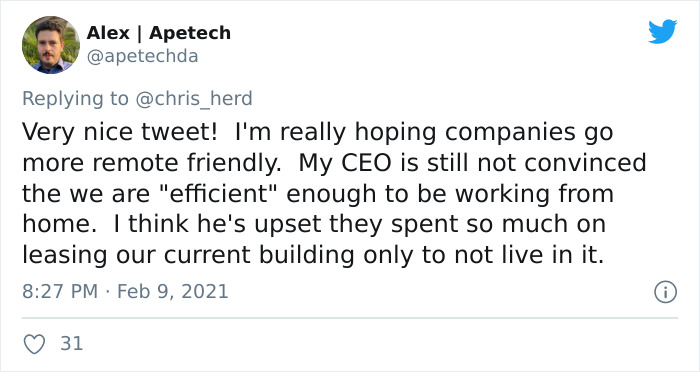
Image credits: apetechda

Image credits: richardbrown200
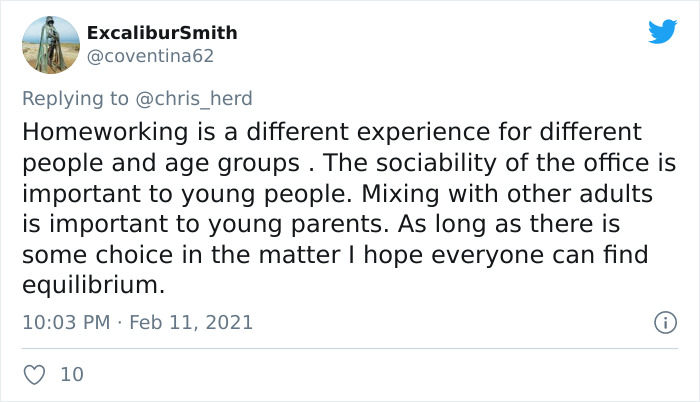
Image credits: coventina62
The post CEO Explains Why Remote Work Is Here To Stay, And It's Enlightening first appeared on Bored Panda.
from Bored Panda https://bit.ly/37rCndc
via Boredpanda